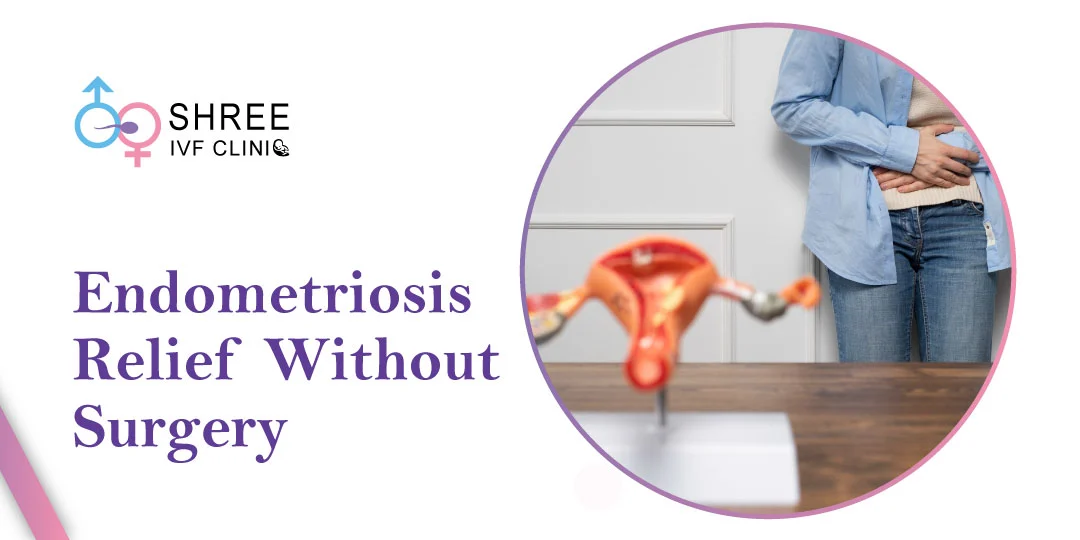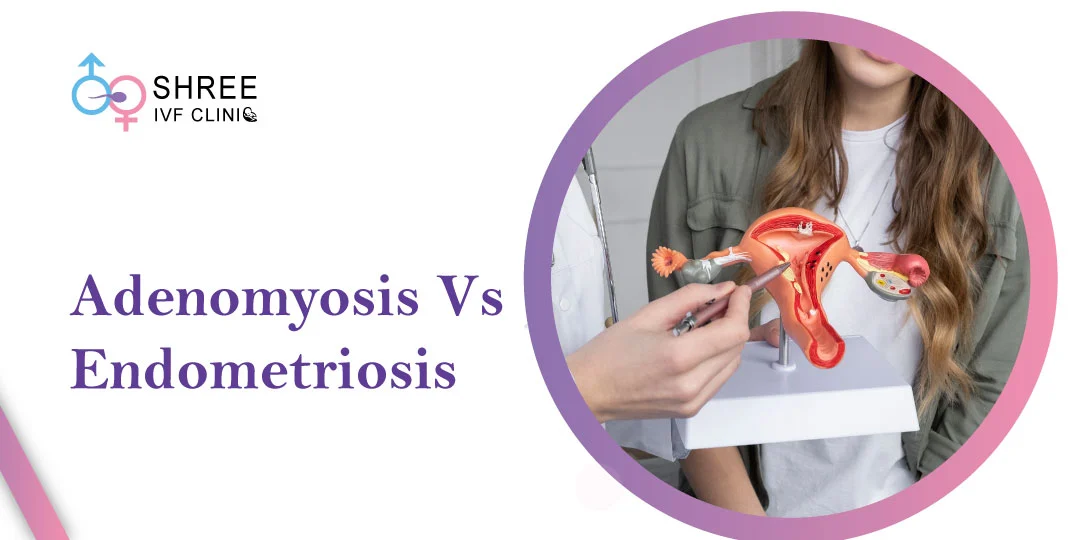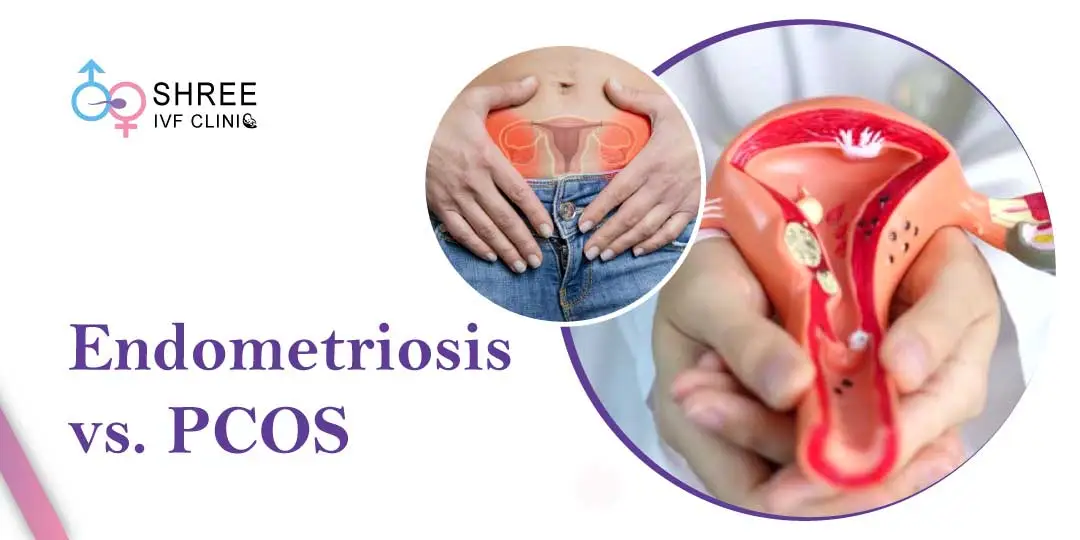How Is Endometriosis Different From Fibroids?
UPDATED ON 7 MAR. 2022

AUTHOR
Dr Jay Mehta
Scientific Director & IVF Specialist with 10+ years of experience
TREATMENT
CONDITION
GET IN TOUCH ON
Nowadays, it is common for women in their early 20s, 30s and 40s to seek treatment for pelvic pain and heavy periods in conditions like endometriosis or fibroids. However, at this age, most women consider getting pregnant; many avoid seeking treatment, which may lead to infertility.
Some women suffering pelvic pain issues may have either endometriosis or uterine fibroids. Both these conditions share similar symptoms, but there are differences.
Both have a role in irregular periods and pelvic pain and are the leading cause of a hysterectomy (surgical removal of uterus/womb). Yet, these two are different conditions. Let’s learn more about what makes them different from the other.
What Are Uterine Fibroids?
The benign nodular neoplasm (tumor) in the uterus’s muscular layer is termed “Uterine Fibroids”. The disease is most commonly seen in women 30-45 years old. It can also be detected in women 20-30 years old. Recent data shows over 24% of women suffer from this disease worldwide.
A fibroid has a low chance of leading to cancer but can often cause miscarriage or infertility, or miscarriage. The growth of fibroids stops with the onset of menopause.
Fibroid nodes can appear as single or in a bundle. Their weight may also vary. Some fibroids overgrow and reach large sizes, causing compression of neighbouring organs resulting in severe pain; others grow slowly, remain asymptomatic and go undetected.
Most of the time, fibroids decrease by themselves or do not increase at all, patients have no symptoms, so treatment is required. Sometimes, patients need medical attention–the effective and safest way to cure uterine fibroids is Uterine Fibroid Embolization (UFE) and myomectomy (a surgical procedure to remove fibroids).
Watch this video to see how UFE is done.
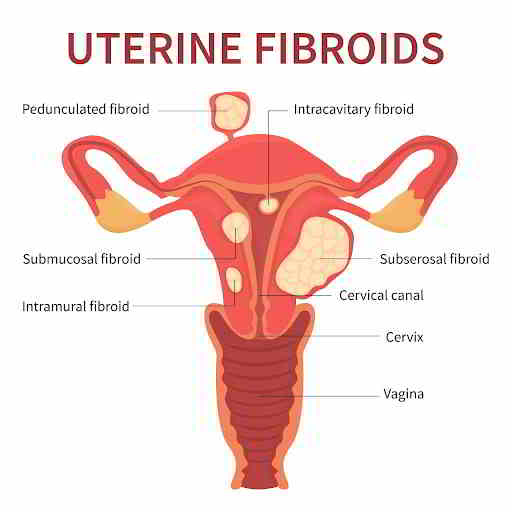
What is Endometriosis?
Every month, the endometrium (muscular wall of the uterus) lining adds layers to prepare for the implantation of a fertilized egg. When the egg is fertilized, the endometrium lining helps keep the egg nourished and helps it to grow within the womb.
If fertilization does not occur, then the endometrium sheds itself with the unfertilized egg during the menstrual cycle.
In endometriosis, the endometrium detaches itself and attaches to different organs except for the uterus such as fallopian tubes, bladder, large intestine, or even the lungs.
As the body recognizes that the cells are not where they should be, the blood and scar tissue will surround those unwanted endometrium cells. Blood cysts are then formed on those organs, causing varying discomfort and pain.
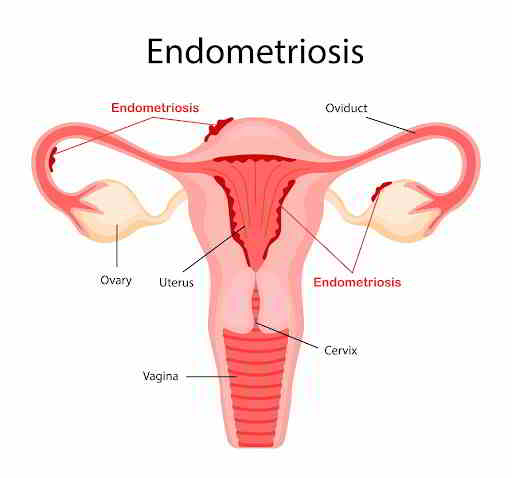
Related Post
Difference between Uterine Fibroids and Endometriosis
|
Uterine Fibroids |
Endometriosis | |
| Epidemiology | Seen in 25% to 80% of premenopausal women. | Seen in 1 to 10 premenopausal women. |
| Symptoms |
|
|
| Treatment | Pain medications, Oral contraceptives, GnRH agonist, myomectomy, Uterine Fibroid Embolization, MRI guided ultrasound surgery, least invasive hysterectomy | Pain medications, Oral contraceptives, GnRH (Gonadotropin-releasing hormone) agonist, hysterectomy(procedure to remove the uterus) |

4,790+
379K+
” Every individual and couple’s journey is unique, and
finding the right solutions tailored to their specific
circumstances can make all the difference “
Conclusion
Either way, if you suspect that you have uterine fibroids or endometriosis, it is extremely important that you consult with your doctor about your signs and symptoms and possible further screening test. These conditions can occur independently of one another or simultaneously. Getting the right treatment for both of these conditions is essential to your overall well-being and health.
We at Shree IVF clinic mumbai are pioneers of the best endometriosis treatment. You can book an appointment to start your treatment today! For more information about uterine fibroids and endometriosis, get in touch with our team of specialists today!
AUTHOR
Dr Jay Mehta
Scientific Director & IVF Specialist with 10+ years of experience
CONDITION
CALL US 24/7 FOR ANY HELP
GET IN TOUCH ON
Share Article on
Recommended Reading
How To Cure Endometriosis Without Surgery?
Endometriosis symptoms can be managed without surgery. Medications, natural remedies, and lifestyle changes help to manage symptoms
Difference Between Adenomyosis and Endometriosis
Endometriosis causes tissue to grow outside the uterus, while adenomyosis leads to growth within the uterine muscle
Endometriosis vs. PCOS: What’s the Difference?
PCOS causes irregular or absent periods due to a hormone imbalance and high insulin/male hormones, while endometriosis causes painful periods without hormone imbalance


